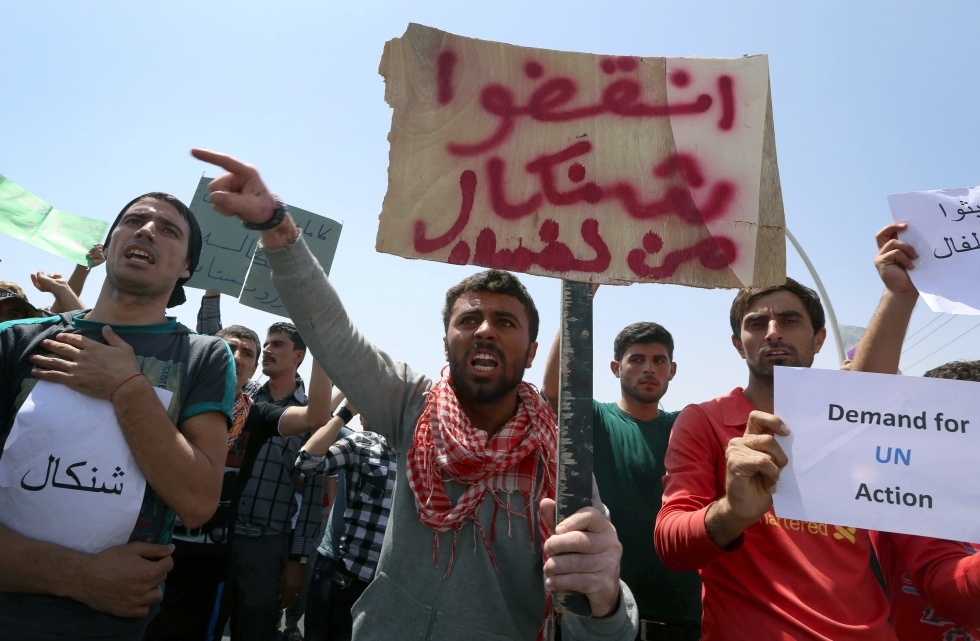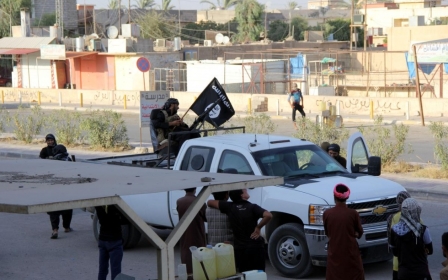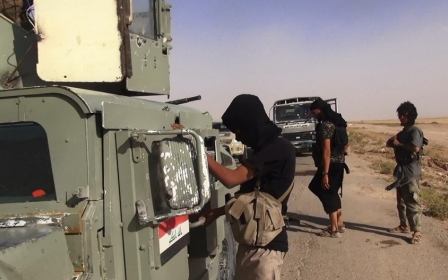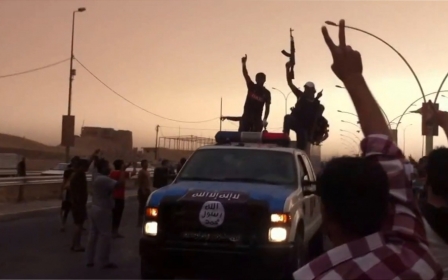40 Yazidi children killed in Islamic State attack

Forty children from northern Iraq's Yazidi minority are reported to have died as a result of a militant attack on the Sinjar region, UNICEF said Tuesday.
"According to official reports received by UNICEF, these children from the Yazidi minority died as a direct consequence of violence, displacement and dehydration over the past two days," a statement from the agency said.
On Sunday, fighters from the Islamic State (IS) that controls much of northwestern Iraq captured Sinjar which had been under the control of Kurdish troops. Thousands of Iraqis - including Turkmens, Arabs and Yazidis - to fled the town, waiting in long queues to enter the Kurdish autonomous region’s capital, Erbil.
Near the Syrian border, the town had been a hub for Iraq's Yazidis, a closed community that follows an ancient faith rooted in Zoroastrianism and referred to by militants as "devil worshippers". Sinjar was also a temporary home for thousands of displaced people from other minorities, such as Shiite Turkmen who had fled the nearby city of Tal Afar when IS launched its offensive on 9 June.
Tuesday's attack on the children comes after Iraqi Kurdish leader Massoud Barzani commanded Peshmerga forces on Monday to "deal a death blow" against militants led by the Islamic State (IS) and the Iraqi government offered its air support, following several IS victories against the Peshmerga over the weekend.
“Prime Minister Nouri al-Maliki has ordered that the Iraqi air force will support Peshmerga forces in any battles with IS,” army spokesman Lieutenant General Qasim Ata told state TV on Monday.
Barzani maintained on Monday that "terrorists" have forced Kurds into a war, despite the Kurdish region having maintained a defensive position after IS seized the city of Mosul in early June.
The Kurdish leader promised not to leave any acre of Kurdish land to militants and to protect Sinjar as well as the Yazidi people taking shelter there.
Barzani said the Peshmerga had been left alone in their "fight against terrorism" and called for a related international effort and initiative.
The European Union's Foreign and Security Policy Chief, Catherine Ashton, called on Monday for Baghdad and Erbil to urgently restore their security cooperation in order to confront IS.
Ongoing clashes
In other parts of the country on Tuesday, fresh clashes between Iraqi government forces and IS-led militant groups left 20 militants and two soldiers dead and another four wounded.
Ten militants and one soldier were killed in early morning battles between Iraqi security forces supported by warplanes and militants in the Turkmen-majority town of Amirli in Tikrit city, said the Salah ad din province operations command.
Six other militants and one Iraqi soldier were also killed in Tikrit's southern Rufayat region.
Separately, clashes in the Iraqi capital of Baghdad left four militants dead.
"Thirteen mortar shells have been capsized in Abu Gurayb region. We also seized scores of other weapons and ammunition," said a statement from Baghdad province operations command.
Militants led by IS and backed by tribal fighters, seized Iraq's second-largest city Mosul on 10 June and captured a number of other cities in the north, including Tikrit and Tal Afar.
They also reportedly control Al Qaim, Rawah, Anah, Al Ratba and Haditha in the western province of Al Anbar.
IS armed groups also extended their grip along Iraq’s Syrian and Jordanian border on Monday after taking control of border crossings, according to Farhan Ftikhan, the mayor of Al Qaim.
Around one million civilians have been displaced so far amid the ongoing clashes in the country.
Middle East Eye propose une couverture et une analyse indépendantes et incomparables du Moyen-Orient, de l’Afrique du Nord et d’autres régions du monde. Pour en savoir plus sur la reprise de ce contenu et les frais qui s’appliquent, veuillez remplir ce formulaire [en anglais]. Pour en savoir plus sur MEE, cliquez ici [en anglais].




